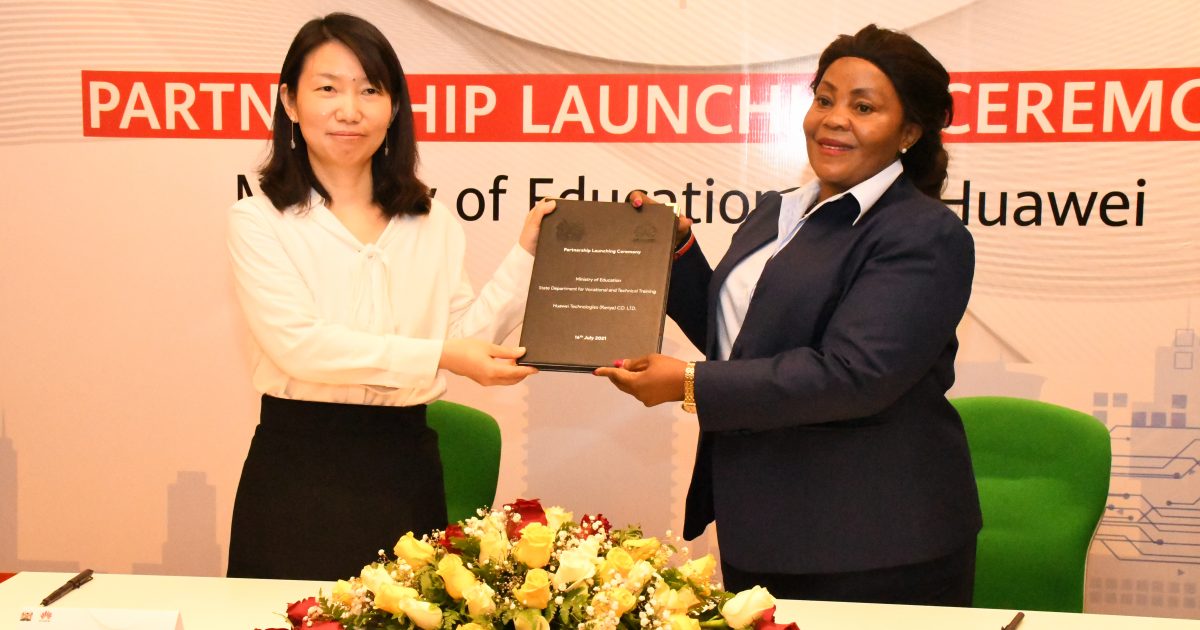The Ministry of Education’s State Department for Vocational and Technical Training has today signed a partnership with Huawei to enhance ICT development within technical education and training.

This partnership reinforces Huawei’s commitment in developing local ICT talent whilst bridging the digital skills gap especially at a time when digital technology is developing rapidly.
State Department for Vocational and Technical Training Principal Secretary Dr. Margaret Mwakima said the Ministry of Education has taken note of Huawei initiatives to develop the digital talent of the youth in the country and beyond.
“It is for this reason that the ministry will sign a partnership to expand Huawei ICT Academies in our TVET institutions,” she said.
The PS who was speaking at a Nairobi hotel during the launch said the Memorandum of Understanding will see institutions from across the country partner to enhance capacity building among their 150 trainers, while offering industry level training to over 1,000 students to prepare them to work in the ICT industry among other key areas.
Speaking at the event, which also saw Huawei sign partnerships with 10 national polytechnics appointed as ICT Academy partners, Ms Fiona Pan, Deputy CEO Huawei said, “As Huawei, we believe Kenya must have a skilled workforce empowered and equipped to take up new opportunities that new and emerging technologies will present as we work towards achieving a digital economy.”
In his remarks Eng. Stephen Rukaria, Principal of Meru National Polytechnic stated that embracing the Competence Based Education and Training (CBET) curriculum like the Huawei professional courses has ensured that skills imparted are industry relevant.
According to a report released by World Bank, it is estimated that 230 million jobs in Sub-Saharan Africa will require digital skills by 2030. It is therefore critical for everyone to partake in the development and take advantage of the opportunities brought about by the ever-changing digital economy.
By Hamdi Mohamud




